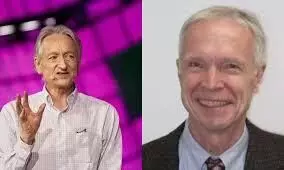
Nobel Prize in Physics awarded to two scientists for breakthroughs in machine learning
text_fieldsScientists John Hopfield and Geoffrey Hinton have been awarded the 2024 Nobel Prize in Physics for their pioneering work in artificial neural networks, which has significantly advanced the field of machine learning.
The Royal Swedish Academy of Sciences, responsible for conferring the award, announced that the two laureates developed methods using physics principles that form the foundation of today's powerful machine learning technologies.
The prestigious Nobel Prize comes with a monetary award of 11 million Swedish crowns ($1.1 million), which will be shared between the winners. Known as one of the most prestigious awards in science, the Nobel Prize in Physics has been awarded since 1901, recognizing exceptional contributions to the field.
The academy praised this year’s laureates for their groundbreaking innovations, which are crucial to the development of modern machine learning systems. Their contributions have had a significant impact on technology, with applications spanning various industries, including artificial intelligence and data science.
Past winners of the Nobel Prize in Physics include luminaries such as Albert Einstein and Niels Bohr, whose work has shaped modern science. Last year, the prize was awarded to Pierre Agostini, Ferenc Krausz, and Anne L'Huillier for their development of ultra-short light pulses, enabling deeper insight into atomic changes.
This marks the second Nobel Prize awarded this week, following the recognition of U.S. scientists Victor Ambros and Gary Ruvkun for their discovery of microRNA and its role in gene regulation in the field of medicine.























